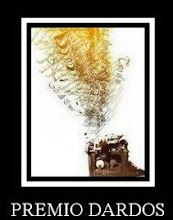 The Federal Reserve, responding to an international stock sell-off and fears about a possible United States recession, cut its benchmark interest rate by three-quarters of a percentage point on Tuesday.
The Federal Reserve, responding to an international stock sell-off and fears about a possible United States recession, cut its benchmark interest rate by three-quarters of a percentage point on Tuesday.The Federal Open Market Committee lowered its target for the federal funds rate on overnight loans between banks to 3.5 percent, from 4.25 percent. The move was unusual both in its scale and its timing: In recent years, the Fed has only rarely acted between scheduled meetings of the committee, and almost always in increments of one-quarter or one-half point. It was the biggest single cut since October 1984.
For the shaken world markets, the move seemed to provide some relief. When trading resumed after a Monday holiday, Wall Street initially joined in the plunge that had shaken Europe and Asia for two days. But after opening down by more than 460 points, the Dow Jones industrial was off about 150 points, or 1.2 percent, at 10:30 a.m. Other indexes were also down, but by less than 2 percent, and some European stock indexes moved into positive territory.
In a statement, the Fed said: “The committee took this action in view of a weakening of the economic outlook and increasing downside risks to growth. While strains in short-term funding markets have eased somewhat, broader financial market conditions have continued to deteriorate and credit has tightened further for some businesses and households.”
“Moreover,” the statement continued, “incoming information indicates a deepening of the housing contraction as well as some softening in labor markets.”
In a related action, the Fed approved a 75 basis-point decrease in the discount rate, to 4 percent.
The Fed action was a stark indication that it is concerned about a possible recession. “Appreciable downside risks to growth remain,” the Fed said in its statement.
The White House maintained a confident face, but clearly worried about the impact of the global sell-off. "Americans should be confident that the long-term health of the American economy remains strong," the press secretary, Dana M. Perino, said on Tuesday morning.
As the market news broke on a holiday, Treasury Secretary Henry M. Paulson Jr. called President Bush on Monday afternoon to brief him about what was happening.
"We don’t comment on daily fluctuations in the markets," Ms. Perino said. She also declined to comment on the Federal Reserve’s rate cut, but she did urge Congress to move quickly to pass a stimulus measure, saying she hoped one could be passed within "weeks not months."
Mr. Bush is to meet Congressional leaders later on Tuesday in a regular session almost certain to be dominated by the economy and the stimulus package. "I’m not going to close off any doors," Ms. Perino said when asked about the shape the package might take.
Mr. Paulson, speaking to the United States Chamber of Commerce, said Tuesday that the administration and Congress needed to agree quickly on a program to stimulate the domestic economy as global markets plunge on fears the United States is heading into recession.
“Time is of the essence and the president stands ready to work on a bipartisan basis to enact economic growth legislation as soon as possible,” Mr. Paulson said.
Mr. Paulson said he was optimistic that the administration and legislators could find a bipartisan “common ground” on the economic package and “get this done before winter turns into spring.”
He also said he hoped to do something in the next couple of weeks “that will make a difference this year.”
The Treasury Department, he said, was focusing on the way home mortgages are originated and traded and said the department is developing a new regulatory framework for subprime and jumbo mortgages where he said markets were not functioning well.



























.jpg)
























































































No hay comentarios:
Publicar un comentario